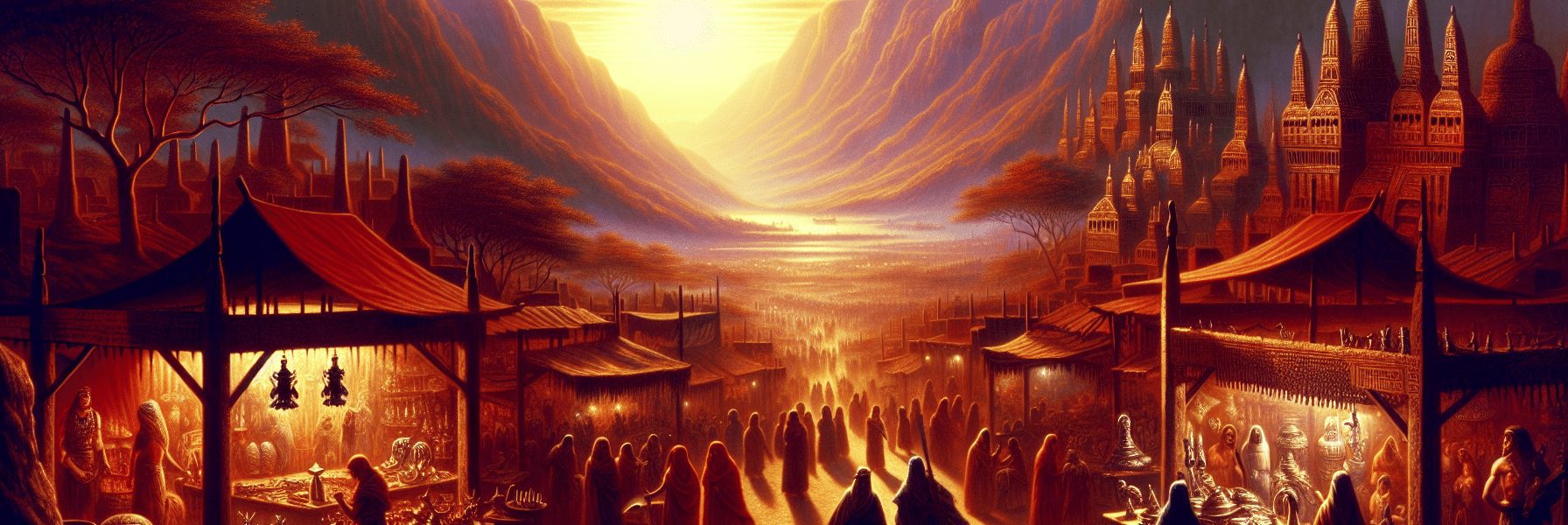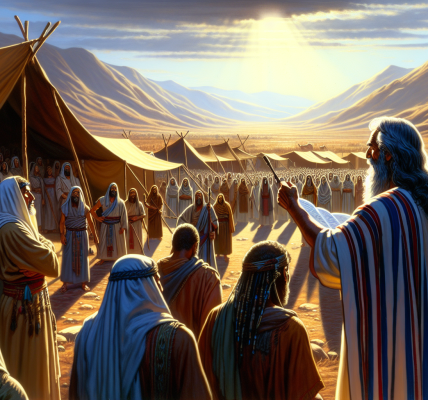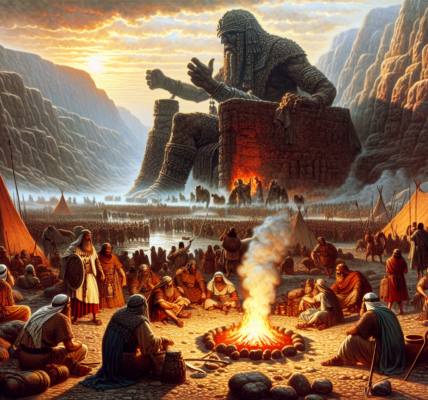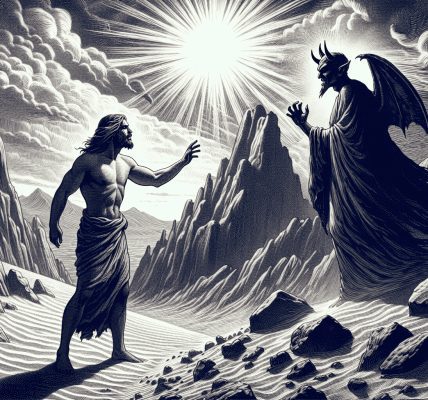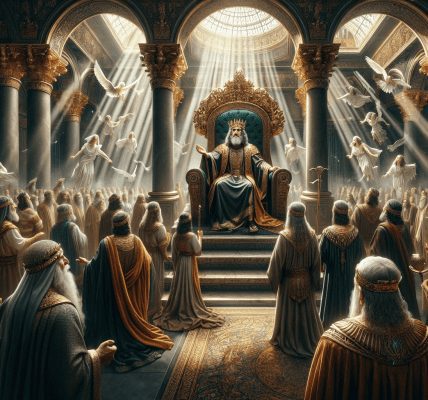**The Folly of Idolatry and the Majesty of God**
The sun had barely risen over the land of Judah, casting long shadows across the hills and valleys where the people stirred from their homes. In the city of Jerusalem, the marketplace was already alive with merchants setting up their stalls, their voices rising in the cool morning air. Among them were craftsmen, skilled in carving wood and shaping metal, who displayed their wares—statues of gods, adorned with silver and gold, their lifeless eyes staring blankly at passersby.
The prophet Jeremiah walked through the streets, his heart heavy with sorrow. The Lord had spoken to him, and the words burned within him like fire. He could not remain silent while his people bowed before blocks of wood and lumps of metal, calling them gods.
### **The Work of Human Hands**
Jeremiah paused before a stall where a craftsman, his hands calloused from years of labor, chiseled away at a block of cedar. Nearby stood a finished idol, overlaid with hammered silver, its face polished to a shine. A wealthy merchant haggled over the price, eager to place it in his household shrine.
*”This is what the Lord says,”* Jeremiah murmured, though his voice soon rose so all could hear. *”Do not learn the ways of the nations or be terrified by signs in the heavens, though the nations are terrified by them. For the practices of the peoples are worthless!”*
The craftsman glanced up, frowning, but Jeremiah continued, his words sharp as a blade.
*”A block of wood is cut from the forest, shaped by a craftsman’s tools. It is adorned with silver and gold, fastened with hammer and nails so it will not topple. Like a scarecrow in a melon patch, these idols cannot speak; they must be carried because they cannot walk!”*
Laughter rippled through the crowd, but it was uneasy. Some shook their heads, while others glared at the prophet. One man, a priest of Baal, stepped forward, his face flushed with anger.
*”You insult the gods! These are sacred images, vessels of divine power!”*
Jeremiah turned to him, his eyes filled with both sorrow and fire. *”They are not gods. They are frauds, the work of human hands. They cannot create, they cannot destroy, they cannot bring rain or withhold it. They are dead, yet you worship them instead of the living God!”*
### **The Lord, the True King**
Raising his hands toward the heavens, Jeremiah cried out, *”But the Lord is the true God! He is the living God, the eternal King! At His wrath, the earth trembles; the nations cannot endure His anger!”*
A hush fell over the marketplace. Even the scoffers felt a chill, as if the very air had grown still. Jeremiah’s voice softened, but his words carried the weight of divine truth.
*”Tell them this: ‘These gods, who did not make the heavens and the earth, will perish from the earth and from under the heavens.’ But the Lord formed all things by His power. He established the world by His wisdom and stretched out the heavens by His understanding. When He thunders, the waters in the heavens roar; He sends lightning with the rain and brings out the wind from His storehouses.”*
The people listened now, some with fear, others with dawning realization. The idols they had trusted in were powerless, but the God of Israel—He was sovereign over all creation.
### **A Call to Repentance**
Jeremiah’s voice grew urgent. *”People of Judah, every man is senseless and without knowledge. Every goldsmith is shamed by his idols, for his images are a lie—there is no breath in them. They are worthless, objects of mockery. When judgment comes, they will perish.”*
He turned toward the temple mount, where the house of the Lord stood. *”But the Lord is your true portion, O Jacob. He who fashioned all things is your inheritance. Turn back to Him before it is too late!”*
Yet even as he spoke, Jeremiah knew many would not listen. Their hearts were stubborn, their ears closed to the truth. Tears welled in his eyes as he whispered the words God had given him:
*”I know, O Lord, that a man’s life is not his own; no one can direct his own steps. Correct me, Lord, but only with justice—not in Your anger, lest You reduce me to nothing.”*
### **The Coming Storm**
Dark clouds gathered on the horizon, a sign of the tempest to come. The people hurried to their homes, some clutching their idols, others deep in thought. Jeremiah stood alone in the emptying square, the wind tugging at his cloak.
The Lord had warned of a coming judgment—a nation from the north that would sweep through the land. Babylon’s shadow loomed, and unless Judah repented, they would face the fury of both God’s discipline and the invaders’ swords.
But still, the choice remained. Would they cling to dead idols, or turn to the living God?
Jeremiah bowed his head and prayed, for he knew the answer in the hearts of many. And so, with a heavy soul but unwavering faith, he continued to proclaim the word of the Lord—to whoever would listen.
For the Lord alone was God, and beside Him, there was no other.
